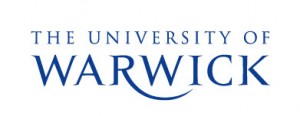Campus
Main Campus – Gibbet Hill Campus
Campus description
Location: CV4 7AL
Size: 290ha
Users: 23,000 students + 5,000 staff + large numbers of visitors
Sustainability strategy outline
The University of Warwick is committed to reduce its carbon emissions by 34% compared to 1990 levels by 2020/21. This is equivalent to a 60% reduction compared to 2005/06 activity.
The University self-generates around 50% of its heat and power through an extensive proprietary combined heat and power district heating network.
Taking future growth in account, our emissions must reduce by 35,000 tonnes of C02 per year.
The University Carbon Management Implementation Plan ranges across emissions scope 1, 2 and 3.
The implementation strategy has three priorities; 1) Reduce energy and water consumption 2) Improve efficiency 3) Change users’ behaviour and culture.
Through the University Carbon Challenge Group, the implementation of the plan is a joined up thinking between academics, non-academics, students and other stakeholders.
The Group develops a holistic plan to enable the University to set targets, to deliver its targets, monitor results and assign high level tasks & milestones.
Take a look at the full carbon plan.
Innovations to be addressed
The major areas of research at the University of Warwick are organised into Global Research priorities, one of which is in the Energy field. Research is aligned with the carbon and energy strategy. The Energy GRP focuses Warwick’s world-class, multidisciplinary research on key areas of international significance, by bringing together scholarly expertise from across faculties and departments. The Sustainability & Energy team has a strong relationship with the GRPs and the University is extremely keen to use the campus as a test bed for research and innovations implementation.
The innovations being addressed in particular are:
• Use the campus as test bed (solar PV, solar PV tracker)
• District heating design and efficient operation
• Control of thermal storage operation
• Research on high temperature and inter-seasonal heat storage
• Behaviour and culture change or staff and students.
• Water consumption reduction
Contact person
Joel Cardinal
E. j.cardinal@warwick.ac.uk

